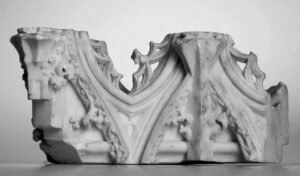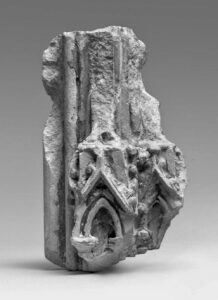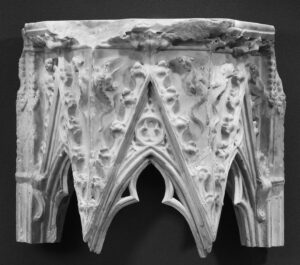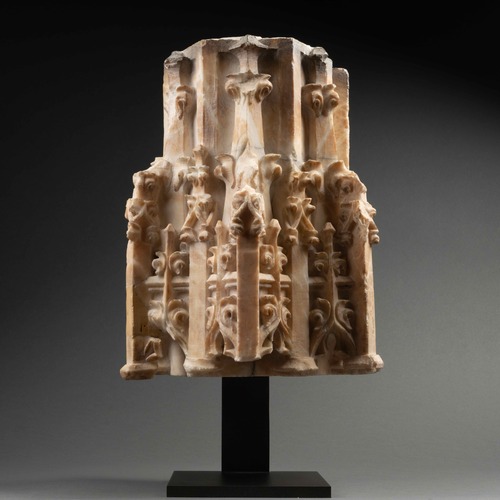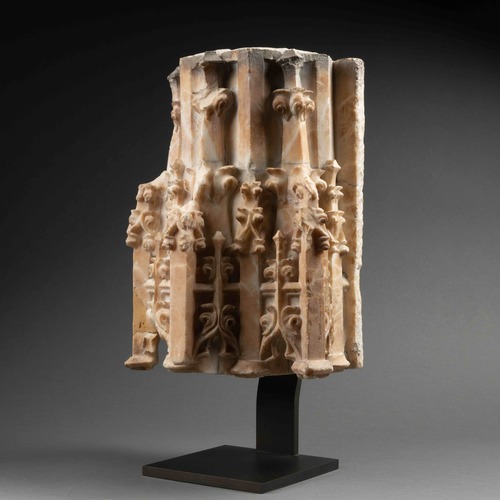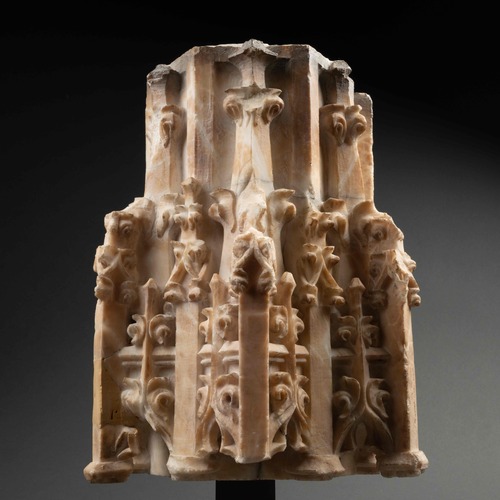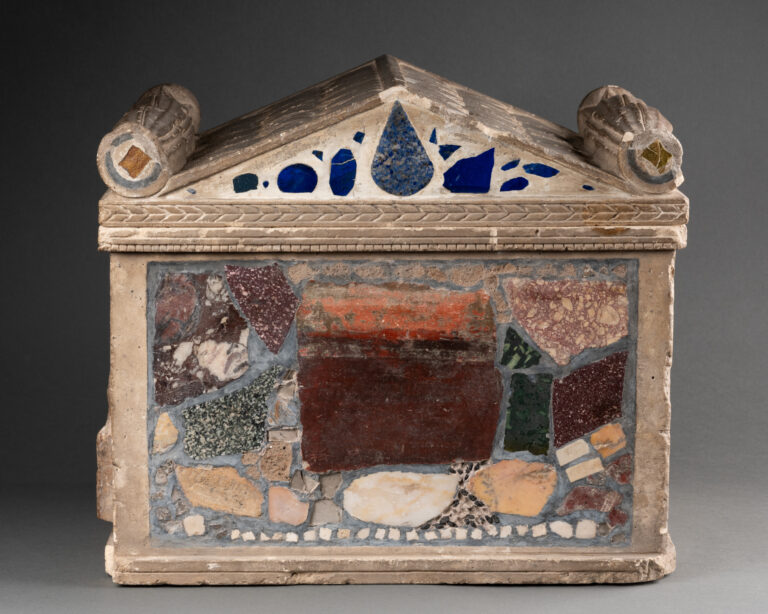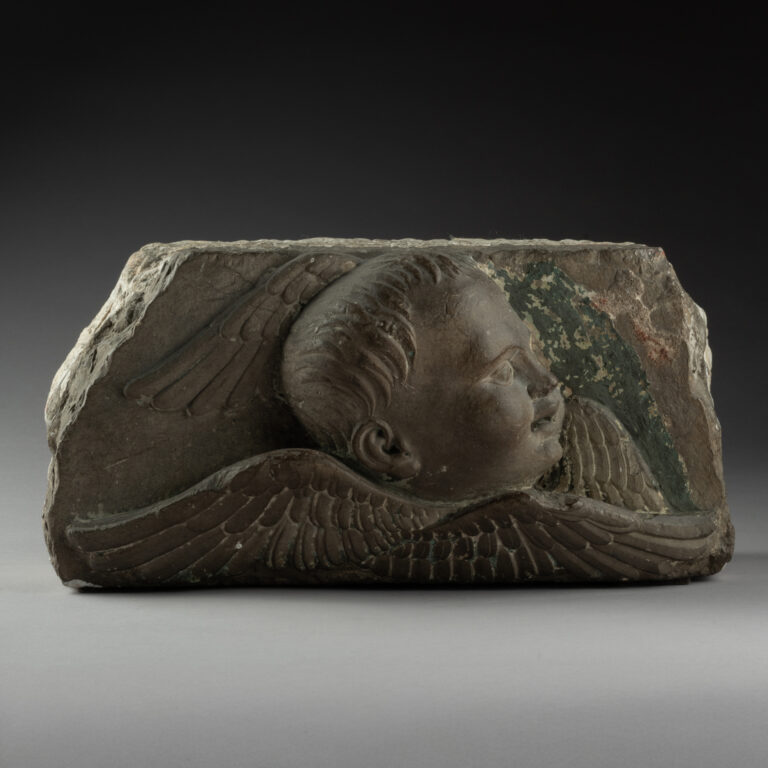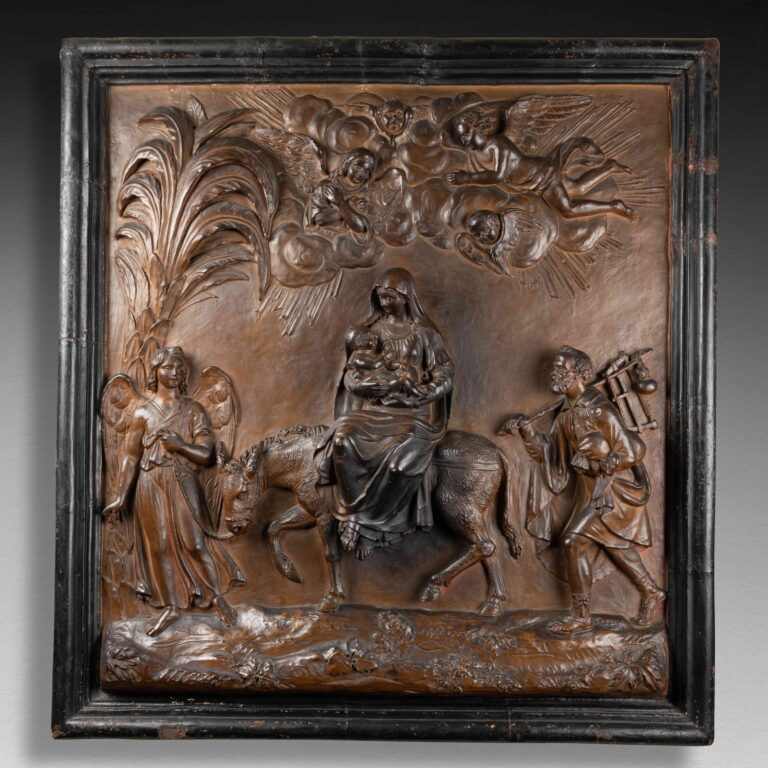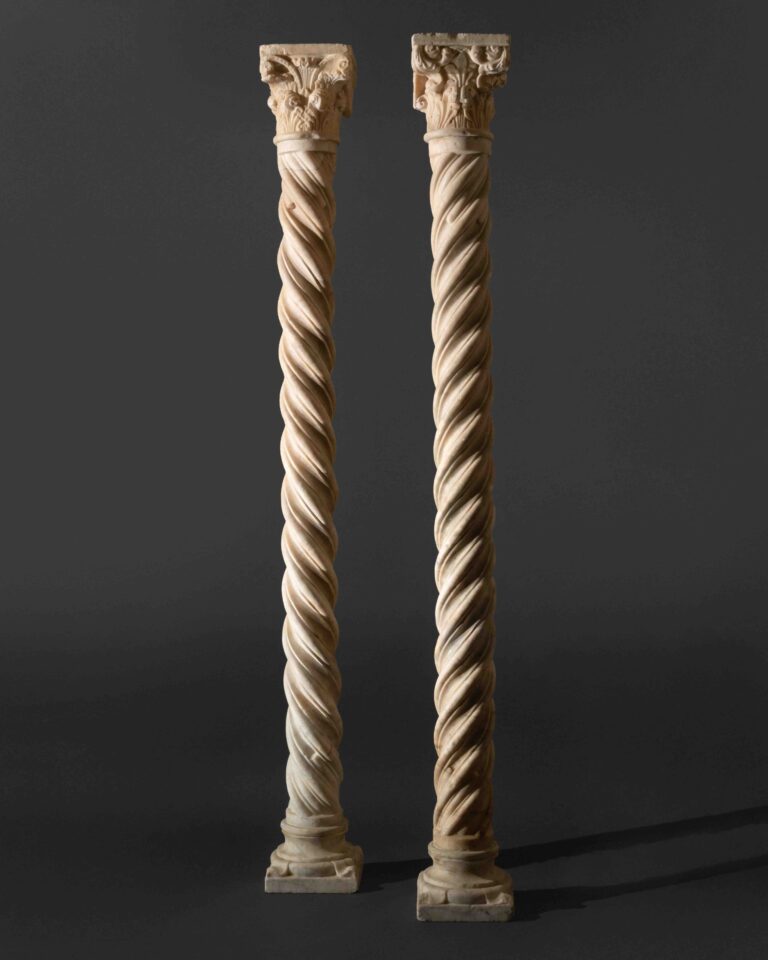Provenance:
– Collection privée Genève, Suisse
This masterful, three-sided canopy is carved in the Flamboyant style, which first developed in France in the 14th century.
The tracery is composed by micro-architectural pinnacles decorated by crockets; the underside of the canopy is decorated by a groin vault
which suggest that the canopy would have originally surmounted a figurative sculpture, creating a micro-architectural space for the statue to inhabit.
The survival of traces of polychrome suggest that it was probably protected by a roof or by a deep porch. Such canopy were commonly located on portals but they were also often inside of churches, over tombs or in private chapels.
Stylistically, the canopy fits within the Flamboyant subcategory of Gothic architecture, which is characterized by curvilinear tracery and flame-like shapes.
In France, Flamboyant started to gain popularity in the late 14th century, relying on texture to « infuse a building inside and outside with a Late Gothic character ». There is a real focus on surface decoration in these buildings and our canopy fits well within that repertoire.
The distinctive character of this canopy is gained through the deep drill-work, which creates deep shadows and a lace-like effect on the surface of this micro-architectural sculpture.
Dated to the second half of 15th century, this canopy exhibits a mature side of the Flamboyant style, where gothic vocabulary started to be integrated into Renaissance composition. The tracery is foliate in character, which is reminiscent of the organic forms on late medieval Gothic buildings.
Few such canopies have survived; such lace-like stonework is fragile and the many alterations made to tombs and private chapels over the centuries have jeopardize their survival.
And as these architectural items do not have the same sacred nature as effigies themselves, they have also suffered more from destruction – whether due to changes in taste, wars of religion and French Revolution.
